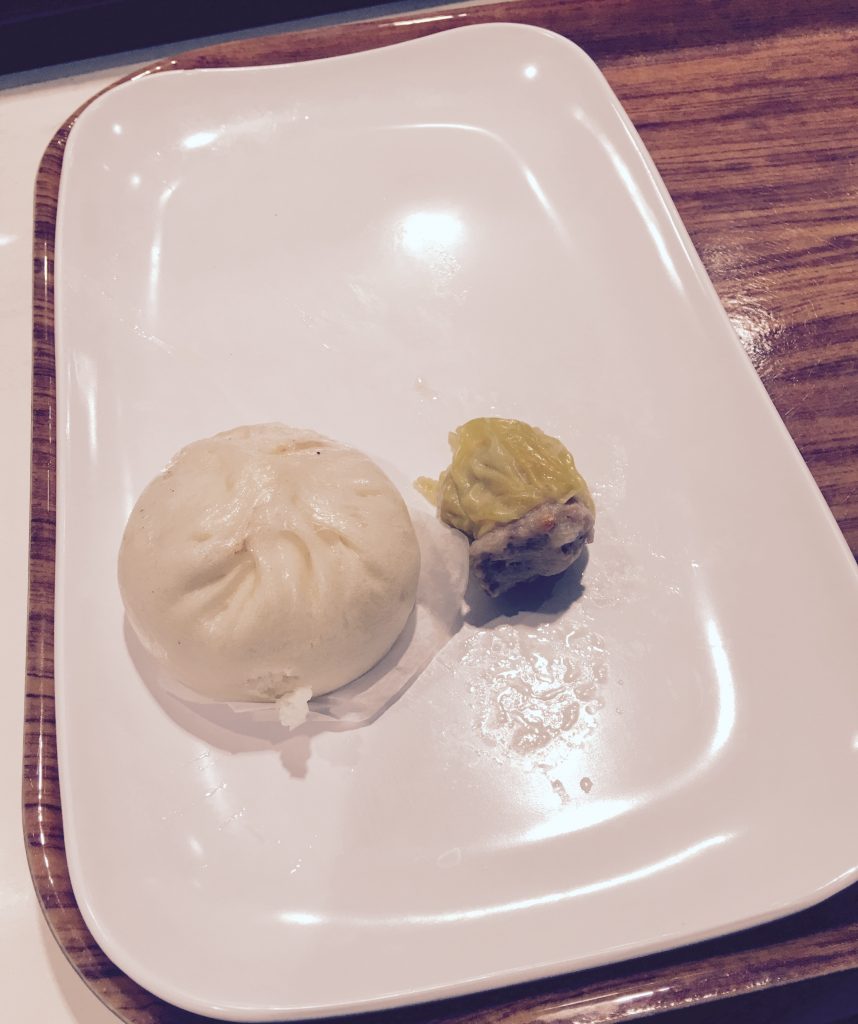
Pictured above is a beautiful plate of Dim sum—a Shumai and a steamed pork bun. Believe it or not, it comes from UBC’s very own dining hall in Orchard Commons. Despite a mostly empty plate, it all looks very appetizing, until the price to buy a single Shumai, at the size of a ping pong ball, is actually a whopping $1.24.
This is a prime example of UBC’s price-gouging tactics.
Price gouging is typically characterized by a good or service that’s priced high when there are no available alternatives, often taking advantage of their consumers who have little choice. From Shumai priced at $1.24 a piece, $7 pastas and $9 fruit cups, it is quite evident that UBC dining halls are overcharging their residents for their meals – a basic necessity for any university resident.
It doesn’t stop there, UBC also charges $1146.25 as an Overhead Fee, which goes towards dining hall operations, and $350.00 as a Capital Improvement Fund, meaning that up to over a third of what a resident pays for their meal plan actually doesn’t get incorporated into their meal dollar balance.
Furthermore, at UBC, there isn’t much competition, and hence selection for UBC residents when it comes to places to eat. Arguably, UBC’s market for places to dine is monopolistic, as there really aren’t many options for residents to spend meal dollars. With UBC’s meal plan being mandatory for most first year residents, it gives the few available vendors the ability to set high prices for their meals.
One could certainly argue that UBC has regulations and costs in place, and would therefore need to hike prices and instate extra fees in order to ensure best delivery of their services. However, an excellent example of another institution with a highly effective dining cafeteria goes to Simon Fraser University. SFU offers a meal plan at an affordable $1910.00 per academic term, featuring a dining hall that is open 24/7, and offers students a wide selection of food at an all-you-can-eat rate, meaning no declining meal dollars. This greatly contrasts UBC’s meal plan which charges a minimum of $4249.86 for two academic terms, subtracting over a third of it, leaving the rest as meal dollars for students to purchase overpriced food.
Of course, UBC should be applauded for their well-established dining halls, offering a wide cultural variety of nutritious options. However, with prices currently too high, and with very few options for many UBC residents, UBC Housing should be encouraged to look into reforms to further improve their service, and provide meals at a more reasonable and affordable price for their students.
Word Count: 434
References:
http://www.investopedia.com/terms/m/monopolymarket.asp – Investopedia Monopoly Markets
https://www.sfu.ca/students/residences/residences/towers/fees.html – SFU Residence Fees
https://www.sfu.ca/students/residences/current-residents/maintenance-and-services/services/meal_plans.html – SFU Meal Plan
http://vancouver.housing.ubc.ca/applications/fees-payments/meal-plan/ – UBC Meal Plan Fees
http://economics.fundamentalfinance.com/price-gouging.php – Fundamental Finance Price Gouging
TRUE.
Honestly I agree!
#Corruption
Great work Jin Zhao.
You’re my hero.
NICE.
2016 first year here… apparently in 2022 there’s now an “all inclusive” plan set for 6.5k…